5 Ways to Reduce Your Commercial Property Insurance Premiums in Florida
See How We're Different
or call us: 954-233-0733
Operating a commercial property in Florida can come with hefty insurance premiums. However, there are several strategies you can implement to reduce these costs. By understanding the intricacies of
commercial property insurance in Florida and taking steps to mitigate risk, you can effectively lower your premiums while still protecting your investment. In this article, we will explore five key ways to achieve this.
Understanding Commercial Property Insurance in Florida
Before delving into the strategies to reduce insurance premiums, it is crucial to have a solid understanding of commercial property insurance in Florida. This type of insurance provides coverage for properties used for business purposes, ranging from office buildings to retail spaces. It protects against losses due to fire, theft, natural disasters, and other covered perils.
Florida, also known as the Sunshine State, is not only a popular tourist destination but also a thriving hub for businesses. From the bustling streets of Miami to the vibrant city of Orlando, commercial properties play a vital role in the state's economy. Understanding the intricacies of commercial property insurance is essential for business owners to safeguard their investments.
The Basics of Commercial Property Insurance
Commercial property insurance typically covers the physical structure of the property, as well as equipment, inventory, and other assets owned by the business. It provides a safety net against unexpected events that could disrupt business operations and lead to financial loss. Whether it's a devastating fire that engulfs a warehouse or a break-in that results in stolen merchandise, having the right insurance coverage is crucial for business owners.
Moreover, commercial property insurance goes beyond protecting the tangible assets of a business. It also includes liability coverage, which safeguards the business from legal claims if someone is injured on the property. This aspect of the insurance policy ensures that business owners can focus on their operations without the constant worry of potential lawsuits.
Why Florida's Commercial Property Insurance Rates are High
Florida's unique geographical location makes it prone to hurricanes, flooding, and other weather-related risks. The state's beautiful coastline and warm climate attract millions of residents and tourists each year. However, this allure comes with a price. The Sunshine State's susceptibility to natural disasters contributes to higher insurance premiums for commercial property owners.
When a hurricane strikes, the destructive power it unleashes can leave a trail of devastation in its wake. From strong winds that tear off roofs to storm surges that flood entire neighborhoods, the impact on commercial properties can be catastrophic. Insurance companies take these risks into account when determining premiums, as they must be prepared to cover the potential costs of rebuilding and repairing damaged properties.
In addition to the weather-related risks, the high cost of construction materials and labor in Florida also impacts insurance rates. The demand for skilled labor and building materials is high, driving up the overall costs of construction and repairs. Insurance companies factor in these expenses when calculating premiums, ensuring they can adequately cover the expenses associated with property damage.
Despite the higher insurance rates, commercial property insurance remains a crucial investment for businesses in Florida. It provides a safety net that allows business owners to focus on their operations and growth, knowing that they are protected against unforeseen events that could otherwise have a devastating financial impact.
Risk Assessment and Reduction
One effective way to lower insurance premiums is to assess and reduce risk within your commercial property. Insurers take into account the property's safety measures and maintenance practices when determining premiums. By implementing the following risk reduction strategies, you can demonstrate to insurers that you are actively working to minimize potential losses.
The Importance of Regular Property Inspections
Regular property inspections allow you to identify and address potential hazards before they become major issues. This proactive approach to property maintenance shows insurers that you are taking steps to mitigate risks, potentially leading to lower premiums.
During property inspections, trained professionals thoroughly examine various aspects of your commercial property. They assess the condition of the building's structure, electrical systems, plumbing, and HVAC systems. Additionally, they inspect the premises for any signs of potential hazards, such as loose wiring, faulty equipment, or slippery surfaces.
By conducting regular inspections, you can stay ahead of any potential problems and take prompt action to rectify them. This not only helps to ensure the safety of your property and its occupants but also demonstrates your commitment to risk reduction to insurance providers.
Implementing Safety Measures
Installing safety features like fire sprinkler systems, burglar alarms, and surveillance cameras can significantly reduce the likelihood of damage or theft occurring on your commercial property. By incorporating these measures, you enhance the security of your property and potentially qualify for discounts on your insurance premiums.
Fire sprinkler systems are a crucial safety feature that can quickly suppress fires and minimize damage. They are designed to automatically activate when a fire is detected, releasing water to extinguish the flames. By having a fire sprinkler system in place, you not only protect your property but also increase the safety of anyone inside the building.
Burglar alarms and surveillance cameras act as deterrents to potential thieves and vandals. These security measures make your property less attractive to criminals, reducing the risk of break-ins and theft. Additionally, surveillance cameras provide valuable evidence in the event of a crime, aiding law enforcement in their investigations.
When implementing safety measures, it is important to choose reputable and reliable systems. Ensure that the fire sprinkler system is installed and maintained by certified professionals, and that the burglar alarms and surveillance cameras are of high quality and regularly monitored.
By investing in these safety measures, you not only protect your property and assets but also demonstrate to insurers your commitment to risk reduction. This can lead to potential discounts on your insurance premiums, making it a win-win situation for both your business and your bottom line.
Choosing the Right Insurance Policy
Selecting the right insurance policy and provider is essential for minimizing insurance costs without sacrificing coverage. It is crucial to dedicate time to compare different insurance providers and understand the terms and conditions of each policy.
When it comes to choosing an insurance policy, there are several factors to consider. One of the most important aspects is the extent of coverage offered by each provider. It is essential to obtain quotes from multiple insurance companies and compare the coverage they offer. This will help you determine which policy provides the most comprehensive coverage for your specific needs.
Another crucial factor to consider is the reputation and financial stability of the insurance provider. It is important to choose a company that has a strong track record and is known for its reliability. This will give you peace of mind knowing that your insurance provider will be there for you when you need them the most.
Customer reviews can also provide valuable insights into the quality of service provided by different insurance companies. Take the time to read reviews and testimonials from existing customers to get a sense of their experiences. This will help you gauge the level of customer satisfaction and the overall reputation of each insurance provider.
Comparing Different Insurance Providers
When searching for insurance coverage, obtain quotes from multiple providers and compare the extent of coverage and premiums offered. Consider factors such as the insurer's reputation, financial stability, and customer reviews to make an informed decision.
It is also important to consider the premiums offered by each insurance provider. While it may be tempting to choose the policy with the lowest premium, it is essential to ensure that the coverage provided is sufficient for your needs. Sometimes, paying a slightly higher premium can result in better coverage and greater peace of mind.
Additionally, it is worth considering any additional benefits or discounts offered by the insurance provider. Some companies may offer discounts for bundling multiple insurance policies, such as home and auto insurance. Others may provide additional coverage options, such as roadside assistance or rental car reimbursement, which can be advantageous in certain situations.
Understanding Policy Terms and Conditions
Thoroughly review and understand the terms and conditions of the insurance policy before making a commitment. Pay attention to the coverage limits, deductibles, and exclusions mentioned in the policy. Some policies may have provisions that allow discounts or additional coverage options that can be advantageous for reducing premiums.
It is crucial to carefully read through the policy documents and ask any questions you may have before signing on the dotted line. Understanding the coverage limits will help you determine whether the policy provides adequate protection for your assets and liabilities. Similarly, knowing the deductibles will give you an idea of the out-of-pocket expenses you may have to bear in the event of a claim.
Exclusions are another important aspect to consider. These are specific situations or circumstances that are not covered by the insurance policy. It is essential to be aware of these exclusions to avoid any surprises when filing a claim. Some policies may have exclusions for certain high-risk activities or pre-existing conditions, so it is important to review these carefully.
Lastly, it is worth noting that insurance policies are not set in stone. They can be reviewed and adjusted as your circumstances change. It is a good practice to review your insurance coverage annually or whenever there are significant changes in your life, such as purchasing a new home or starting a family. This will ensure that your insurance policy continues to meet your evolving needs.
Taking Advantage of Discounts and Deductibles
Insurance companies often offer discounts and deductibles that can help reduce commercial property insurance premiums in Florida. By exploring these options and making informed decisions, you can effectively lower your costs while still maintaining comprehensive coverage.
Exploring Available Discounts
Many insurers offer various discounts that can significantly reduce insurance premiums. These discounts can be based on factors such as the presence of security systems, fire-resistant construction materials, or being a member of a professional organization. Discuss these possibilities with potential insurers to determine the discounts that apply to your commercial property.
Opting for Higher Deductibles
Choosing a higher deductible can lead to a reduction in insurance premiums. A
deductible is the amount you agree to pay out of pocket before the insurance coverage kicks in. It is important to carefully assess your financial situation to ensure you can comfortably afford the deductible amount in the event of a claim.
Maintaining a Good Insurance History
Your insurance history plays a significant role in determining your insurance premiums. Taking steps to maintain a good insurance history can ensure that you are eligible for lower premiums in the future.
The Impact of Claims History on Premiums
Frequent insurance claims can lead to higher premiums as insurers view these claims as an increased risk. By practicing risk reduction strategies and minimizing claims whenever possible, you can demonstrate to insurers that you are a responsible policyholder and potentially qualify for lower premiums in the future.
The Role of Credit Score in Insurance Premiums
Your credit score can also impact your insurance premiums. Insurers often consider credit history as an indicator of risk and may adjust premiums accordingly. Maintaining a good credit score by managing financial obligations responsibly can help keep insurance premiums affordable.
In conclusion, reducing commercial property insurance premiums in Florida requires a comprehensive approach. By understanding the basics of commercial property insurance in the state, assessing and mitigating risks, choosing the right policy, and taking advantage of available discounts, you can effectively lower your insurance costs. Additionally, maintaining a good insurance history and credit score can also contribute to more affordable premiums. Implement these strategies to protect your commercial property while optimizing your insurance budget.








